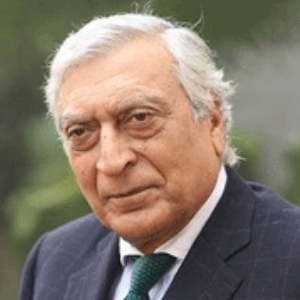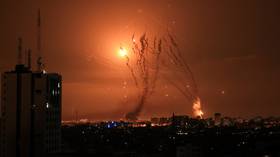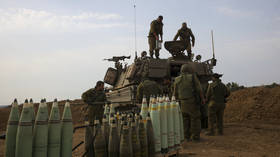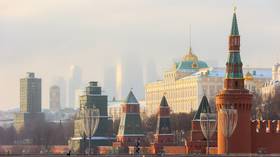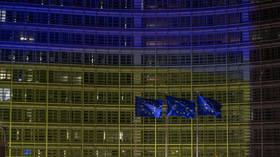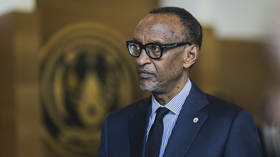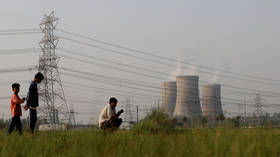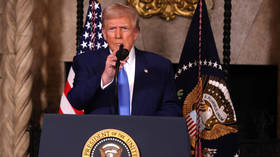Every Middle East issue is derailed by the Israel-Hamas conflict

Israel has no doubt suffered a national trauma, with a large loss of civilian lives at the hands of Hamas terrorists and the failure to prevent it due to a serious intelligence failure. Israel is seeking vengeance, so Gaza is being bombed and fuel, water, and food supplies to the strip have been cut off.
Asking more than a million Gazans to move from the north to the south to allow a flattening of buildings and prepare for a ground invasion – in order to supposedly reduce civilian deaths – will inevitably lead to a greater humanitarian disaster. The bombing of a hospital in Gaza, notwithstanding the dispute over who is actually responsible – whether it is Israel or the Islamic Jihad – has inflamed Muslims worldwide, with pro-Palestinian demonstrations taking place even in Europe and the US.
Israel’s position is further complicated internally and externally by polarized domestic politics. Repeated elections, unstable coalition governments, frequent changes in leadership, months of street protests against Prime Minister Benjamin Netanyahu’s decision to introduce judicial reforms – which many see as threatening Israeli democracy – may in part explain why the Hamas carnage caught the Israelis by surprise.
Senior Israeli political figures and the leftist Israeli media blame Netanyahu personally for creating the conditions for this disaster by taking eyes off Gaza with the larger strategic aim of preventing the emergence of an independent Palestinian state on the West Bank, to the point of even boosting Hamas against the Palestinian Authority in order to keep the Palestinian movement divided. The extreme right-wing elements in Netanyahu’s current government, called “messianic” by Israeli politicians of repute, are blamed for more land grabs in the West Bank with accompanying violence, inflaming as a result Palestinian sentiments and drawing attention away from preparations in Gaza that culminated in the horrendous Hamas attack in southern Israel. Symptomatic of the divisions amongst the international Jewish community is the pro-Palestinian demonstration by American Jews within the precincts of the US Capitol.
The US, the principal supporter of Israel, and traditionally the dominating external power in West Asia, is facing a major dilemma. Many reasons – geopolitical, humanitarian, and the influence of powerful lobbies – compel the US to support Israel. At the same time, a wider conflagration in West Asia risks drawing the US into another unwanted war in the region. To prevent this, the US has sent two aircraft carrier groups and a marine formation to the Mediterranean. The intention is to deter the Lebanese Hezbollah from opening another front against Israel, as this could potentially lead to Iran and Syria getting involved.
While it publicly expresses full solidarity with Israel, the US has to be careful on the humanitarian front, which is why it has pressed Israel to provide water to southern Gaza and has pushed for some humanitarian supplies to enter Gaza from Egypt. Whether Israel can be dissuaded from launching a ground invasion of Gaza is unclear. If Israel does go ahead, it would appear – rightly or wrongly – that Biden green-lit it. This would create a backlash against the US in the Islamic world. If Israel does not go ahead, it would politically expose the ruling Israeli government to a backlash by far-right elements in the country.
That Biden chose to visit the area suggested that the earlier tour of State Secretary Antony Blinken to Israel, Egypt, Jordan, and Saudi Arabia had not succeeded in finding a way to prevent the situation from worsening. Unfortunately for Biden, the hospital attack in Gaza subverted his visit and the planned summit with Jordan, Egypt, and the Palestinian Authority was called off by Jordan's monarch. Street pressure in the Arab world, indeed the Muslim world, has made it politically risky for Arab regimes to confer under US tutelage. This has been a personal political blow to Biden, as well as the US role in the region. That the US was alone in vetoing a Security Council resolution by Brazil in favor of a humanitarian pause to allow the flow of aid into the territory increases the reputational loss of the US in the Muslim world.
The UN Security Council has once again proven to be ineffective in dealing with security issues. UN Secretary-General António Guterres has seen his low-keyed role confined to humanitarian aid issues. That he was physically present at the Rafah border in Egypt to supervise a very limited and inadequate flow of humanitarian aid sends its own message about the diminution of the UNSG’s role.
The Arabs too are placed in an awkward situation. Their support to the Palestinian cause has waned over the years. The political acceptance of Israel has grown, to the point that the UAE, Bahrain, and Morocco have – as part of the US-promoted Abraham Accords – established diplomatic ties with Israel. Saudi Arabia was in intensive negotiations with the US on normalizing its ties with Israel subject to the US fulfilling its security and some other demands. The Saudis have officially put this process on hold. Saudi Arabia deeply opposed to Hamas as a terrorist organization with ties to the Muslim Brotherhood. This explains why Saudi Arabia’s statements on the Israeli-Hamas conflict have been moderate, which is the case of UAE too, which is also strongly opposed to Hamas. Both Gulf monarchies want to focus on economic development issues, modernize their economies, moderate their Islamic image, part of which has been the willingness to make Israel part of realizing these ambitions.
Significantly, Qatar and Türkiye have strong links with Hamas, as their leaders have strong ties to the Muslim Brotherhood. Qatar, in fact, hosts the top Hamas leadership. It has funnelled a lot of money to Hamas under Israeli watch, and now is being used as an intermediary to effect a release, if possible, of Israeli hostages. Turkish President Recep Tayyip Erdogan broke diplomatic relations with Israel in 2011 over his seaborne efforts to provide relief to the Gazans, which were violently blocked by Israel. Ankara is taking up the Palestinian cause and has come forward with a peace plan based on a two-state solution, with regional countries providing security guarantees.
Egypt is resisting pressure to allow Gazans to seek “temporary” humanitarian refuge in the Sinai desert. Egypt has burnt its fingers with Hamas before and fears its presence in Sinai will revive the problem of terrorism infesting this area. Besides, it is well aware that “temporary” refuge could well become a more permanent one. President Abdel Fattah el-Sisi has suggested that Israel shelter the Gazans in Israel’s Negev desert instead. Jordan, too, has completely rejected the idea of sheltering more Palestinian refugees given their already large presence in the country, with memories of the civil war that erupted in 1970 between the Jordan monarchy and the Palestinian Liberation Organization under Yasser Arafat.
Iran is blowing hot and cold. It is hostile to the state of Israel and supports both Hamas and the Hezbollah. While it denies having any hand in the brutal terrorist attacks by Hamas against Israel, it is warning against the conflict spreading if Israel continues its unrestrained bombardment of civilians in Gaza, warning that this could bring Hezbollah into the fray, with all the ensuing dangers. Most significantly, the Iranian foreign minister has visited Saudi Arabia (besides Lebanon) to discuss the gravity of the situation. This shows how much the political landscape in this region has changed, and this at the cost of US influence.
Russia too is an awkward position in some respects, as it has interests in both Israel and the Arab world. A significant portion, about a million, of the Israeli Jewish population is of Russian origin. At the same time, Russia has become a powerful actor in West Asia with its presence in Syria, as well as its close ties with Saudi Arabia and Iran. It moved a resolution in the UN in favor of a humanitarian ceasefire in Gaza, release of all hostages, aid access and safe evacuation of civilians, but it could not be passed. In President Vladimir Putin’s view, the only solution to the crisis enveloping the region is a two-state solution, and he hopes that this crisis would compel this outcome. On the other hand, this conflict draws attention away from the Ukraine issue, where a degree of fatigue in supporting Ukraine in US and European political and public opinion is setting in.
China has taken a robust position in favor of Palestine, advocating restraint, ending hostilities to protect civilians, condemning all acts that harm civilians, opposing all acts that violate international law and calling for Palestinian statehood. However, it has not condemned Hamas. Foreign Minister Wang Yi has stated that Israel’s actions went beyond the scope of self-defense, adding dramatically that “Israel had obtained the safeguards for survival, but who will care about the survival of the Palestinians,” and that the “Jewish nation is no longer homeless in the world, but when will the Palestinian nation return to its home?” China is consolidating its position in West Asia, seeing an opportunity to do so at the expense of the US.
India too is an awkward position. It has roundly condemned the terror attacks against Israel, expressed solidarity with Israel more than once, but has also restated its established position in favor of a sovereign, independent, and viable Palestinian state. India has excellent ties with Israel and the Arab world, which it must preserve. India had profited from the Abraham Accords to establish the I2U2 grouping (India, Israel, US and UAE) with economic cooperation in view. The India-Middle East-Europe Corridor, announced at the G20 summit in New Delhi, envisioned Israel’s Haifa port as the staging point for connecting with Greece. Bot these projects will be put on hold for now.
